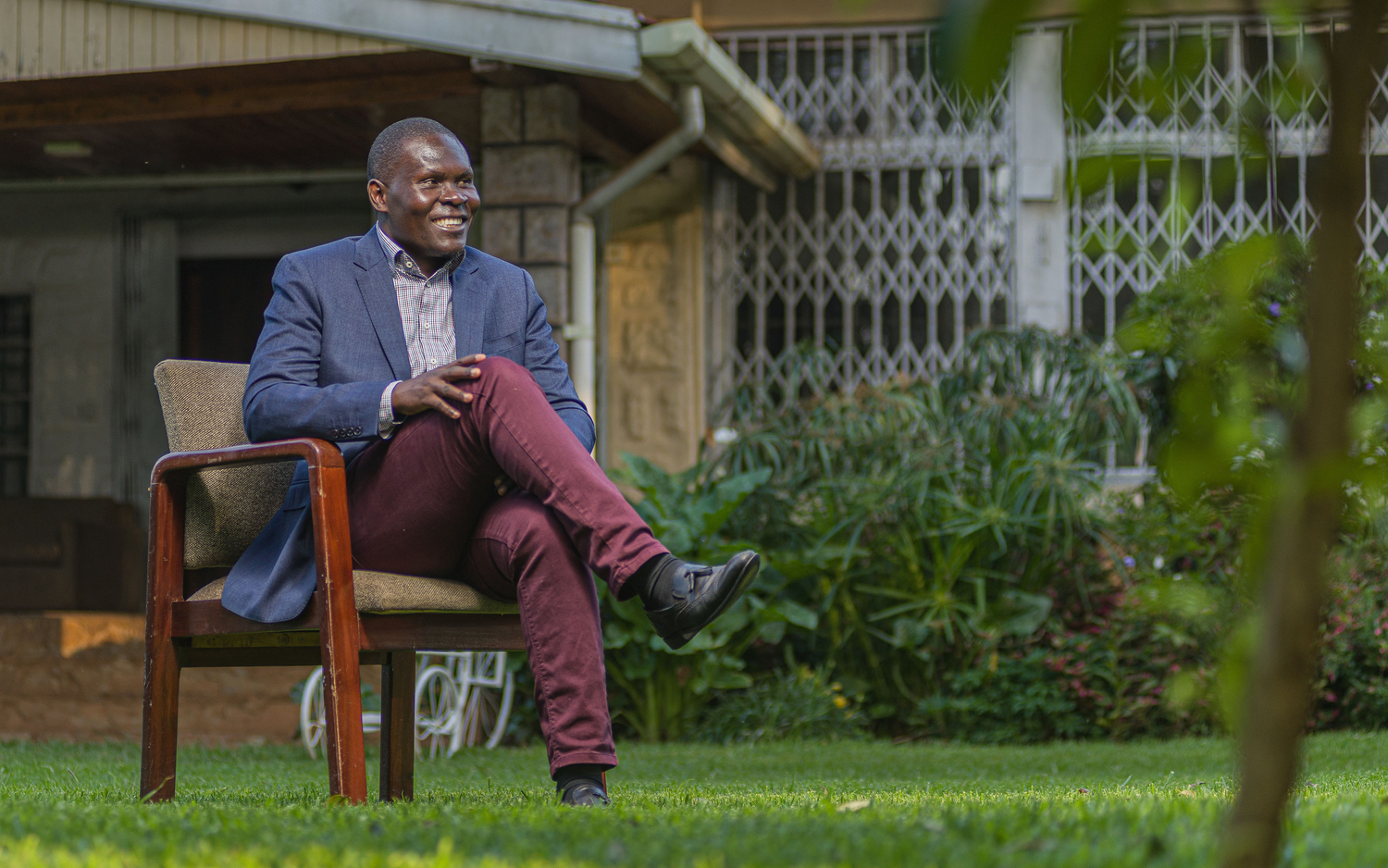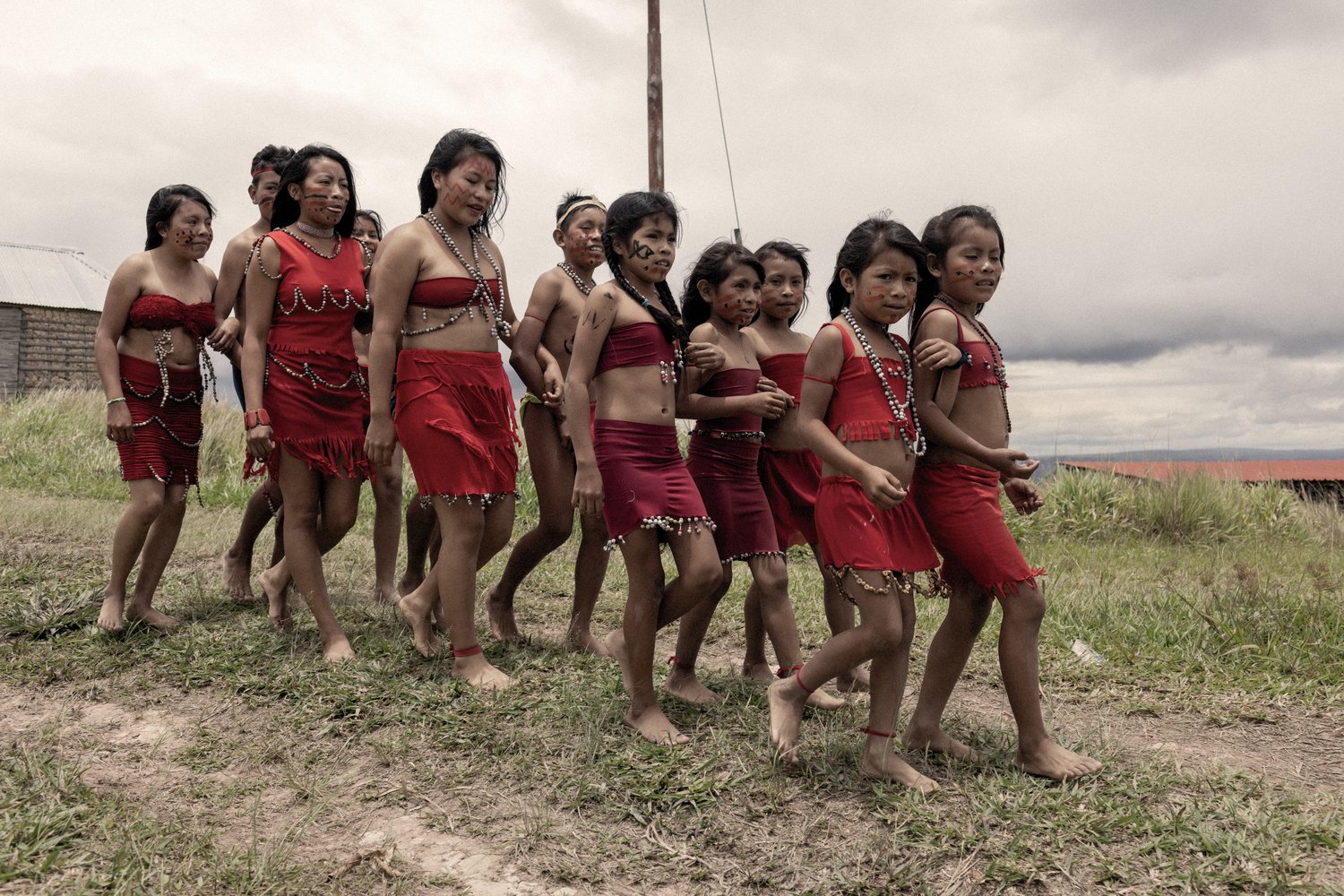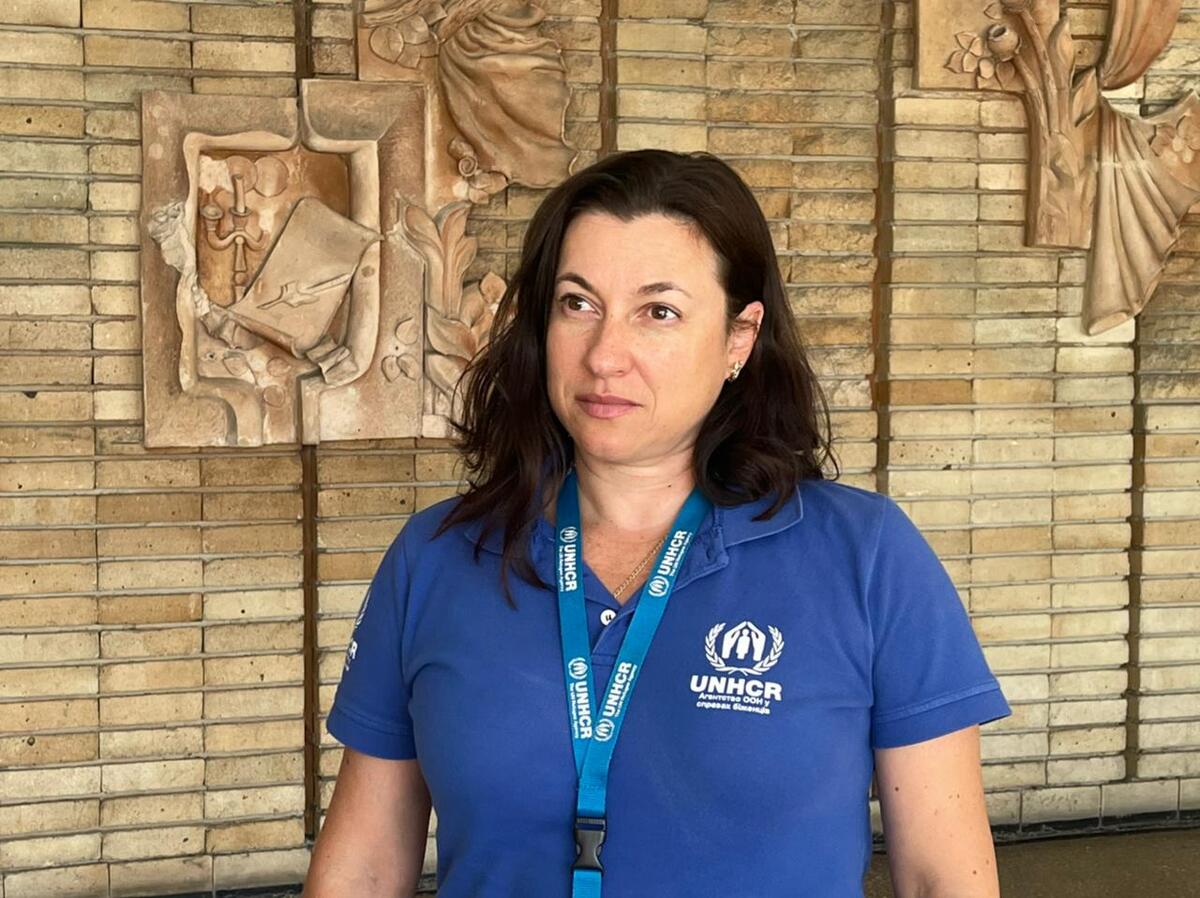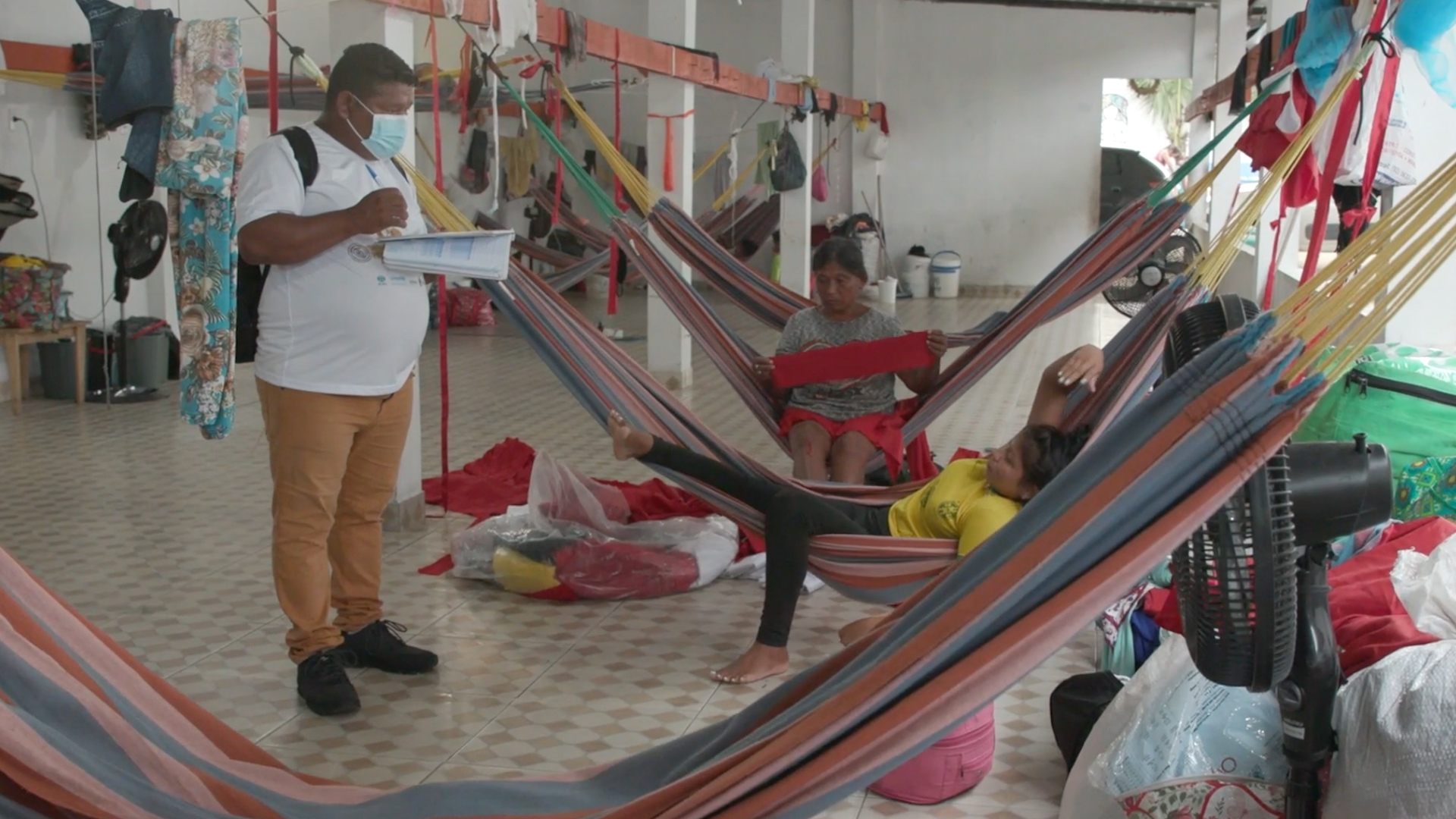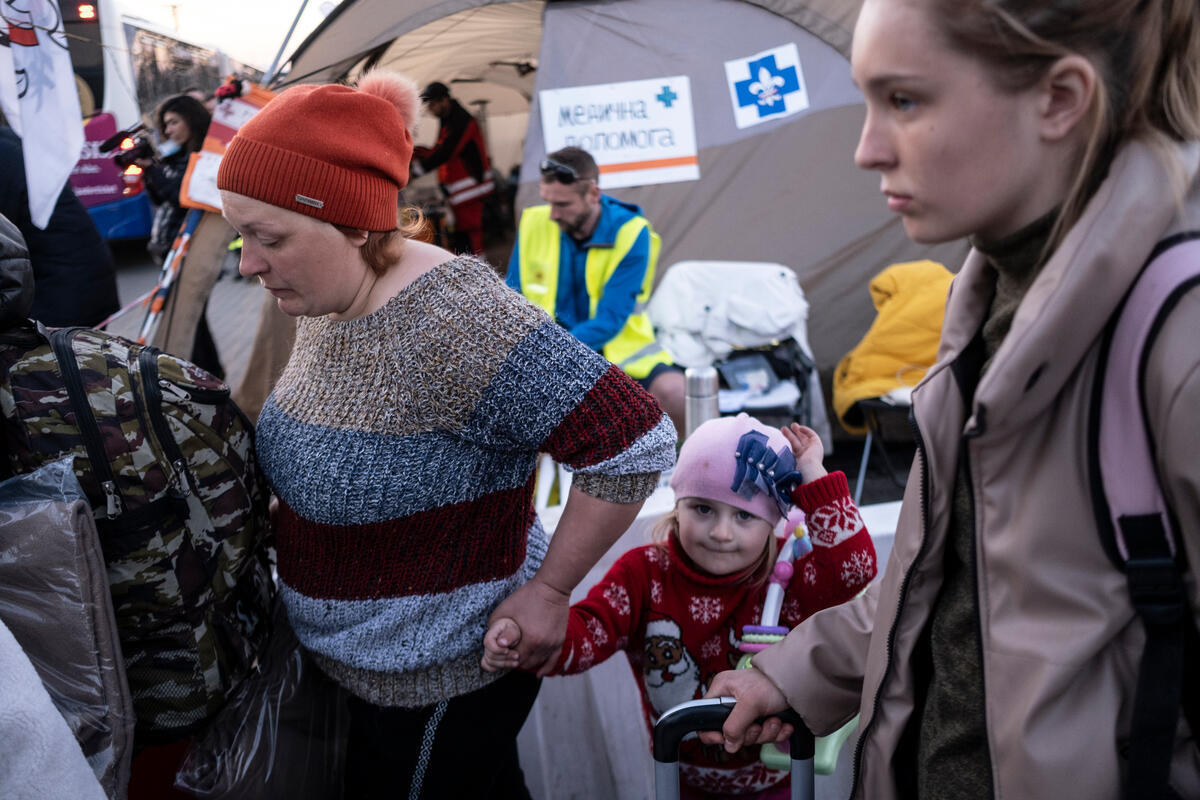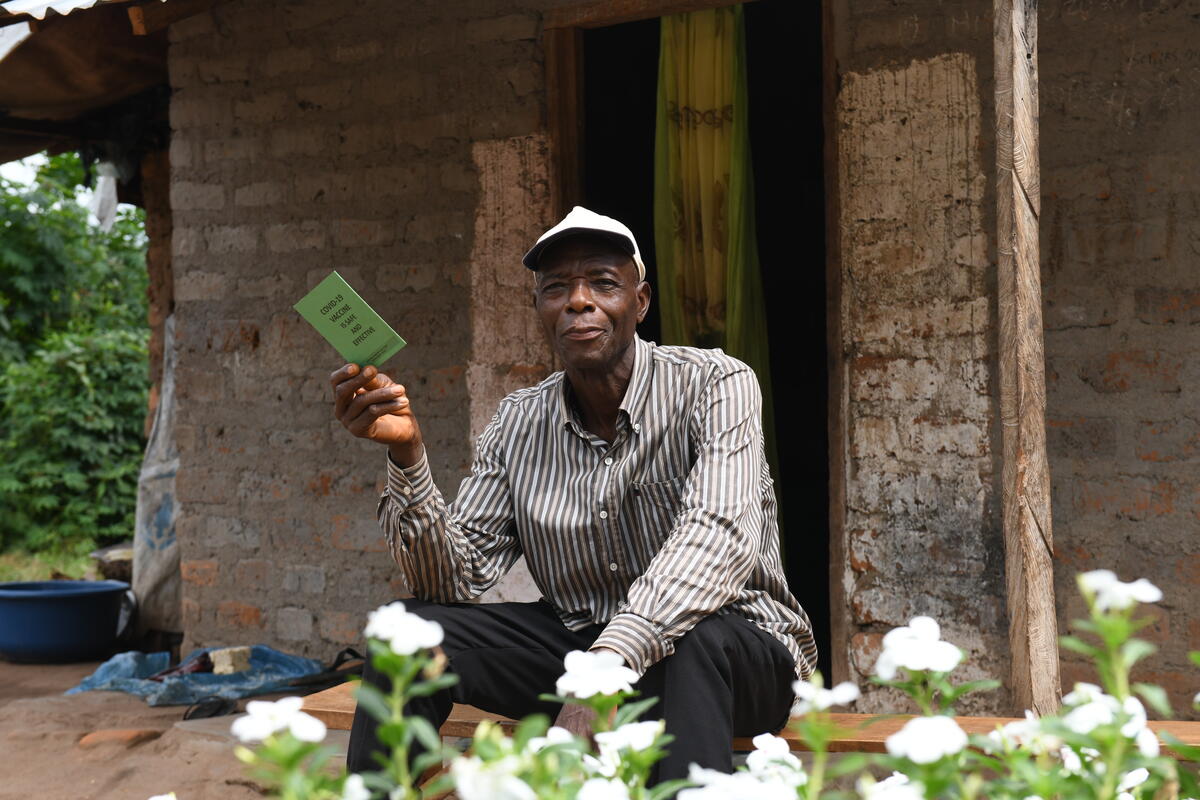'Walking in their shoes has given me the tools I need to serve'

'Walking in their shoes has given me the tools I need to serve'
Name: Elvia Eduviges Peñaranda, 38, from Caracas, Venezuela.
Job title: A nurse by training, Elvia worked as an assistant in a gynaecological clinic in her native Venezuela. She is currently a Local Liaison Promoter with the Refugee UN Volunteer programme in her host city of Cúcuta, on Colombia’s eastern border with Venezuela.
UN Volunteers is a pool of over 250,000 talented and qualified people from around the world who are deployed to shore up the work of UN agencies the world over. A joint initiative between UN Volunteers and UNHCR, the new Refugee UN Volunteer programme gives displaced people the opportunity to build on their skills while providing much-needed humanitarian assistance. UN Volunteers receive allowances, which permit those selected to take part in the programme to support themselves and their families.
How did you become a Refugee UN Volunteer?
My story starts back in Venezuela, where I was born and where I studied to become a certified nurse. Because of the situation of the country, I couldn’t ever find a job in my field. I eventually found work as an assistant in a gynaecological clinic, but the situation in Venezuela kept getting worse and worse, to the point where my mother, who has diabetes, couldn’t get the medicines she needed. Because of the risks in Venezuela, I was also worried about the future of my two daughters, who were 5 and 10 at the time. By the time we left Venezuela, we were down to eating only sardines with yucca, or ground corn, and I weighed 42 kilos.
Before we left, I had a job offer to work as a nanny in Colombia, but when we got here, the job had been given to someone else. It was a real setback, and I had no choice but to do any kind of work I could find. I worked as a housecleaner, I worked in a beauty salon and I worked as a street vender, selling homemade empanadas and coffee. I would get up at 3 a.m. to make the empanadas and by 6 a.m. I would be out the door, pounding the pavement. There were many days where I earned just barely enough to buy food for the day – a kilo of rice, a bit of meat, a few tomatoes and onions and bananas.
After about a year of that, by chance someone invited me to attend a workshop at a church that was aimed at giving Venezuelan refugees and migrants new skills. I went and really liked it and I started to attend all the workshops they held. They led to contacts with lots of humanitarian groups and eventually I started volunteering as a Liaison Promoter, working in the field with the Venezuelan community. Eventually, a UNHCR staff person who saw me working in these communities told me, “Why don’t you apply for a position as a Refugee UN Volunteer? You should definitely apply!”
I scrambled to get all the paperwork together in just a week. The application is in English, and I really don’t speak English, so I had to get help in filling it out. The day I found out that I had gotten the position was one of the most marvellous days of my life. After so much pounding the pavement, selling coffee, selling empanadas, so much work cleaning people’s house and working in the beauty salon, my prayers for a job that would allow me to support my girls had finally been answered.
Describe your day-to-day as a Refugee UN Volunteer.
Basically, my job consists in being a connection between UNHCR and the communities it serves. I work on the ground in really vulnerable communities, neighbourhoods with dirt roads where, when it rains, the residents frequently have no way of getting in or out. My job is to be out there in these communities, talking to the residents, helping give them the advice and information they need. The topics I tend to get asked about are things like options for regularizing immigration status and also where they can see a doctor or access other rights and services.
I love my job because it’s all about interaction, and it’s very satisfying to be able to spend all day talking to people and helping them solve their problems. It’s satisfying to be able to give people the information they need. Even when I don’t immediately have the answer, it’s great to be able to go back to the person the next day and say, ‘I looked into it, and I now have the right answer for you.’ They have so much confidence in what I tell them, and that makes me feel good.
Do you think the fact that you, too, are a Venezuelan who had to flee the country helps you do your job?
Oh, for sure. Being Venezuelan, having made the journey from Caracas and literally walking in their shoes has given me the tools I need to serve. I was in a very similar situation to the one they find themselves in. Like them, I was vulnerable, so I know how pressing their needs are, and how important their questions are. Now, as a Refugee UN Volunteer, I can support my family and provide a dignified life for them by helping my community.
UNHCR, the UN Refugee Agency, works in 135 countries, helping men, women and children driven from their homes by wars and persecution. Our headquarters are in Geneva, but nearly 90 per cent of our staff are based in the field, helping refugees. This profile is part of a series highlighting our staff and their work.



